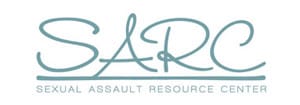June Spotlight: Fair Housing Council Bus Tour
In May, SARC staff participated in the Fair Housing Council Bus Tour of Portland: Fasten Your Seat Belts…It’s Been A Bumpy Ride. Over the four-hour journey, the guides explore how Oregon’s history of social and political discrimination impacts our communities today. Oregon’s viciously racist history is often easy to ignore, especially when we do not have representations of our past confronting us regularly in our present.
The City of Vanport, aptly named for sitting neatly between Portland and Vancouver, led the Oregon in racial integration. Hastily constructed to house laborers flocking from other parts of the country to work in Oregon shipyards, Vanport was home to integrated schools, grocery stores, a fire department, a college, and more. Though imperfect, the Vanport community existed in stark contrast to the rest of the state, steeped in violent roots of social, cultural, and political racism.
On May 30, 1948, a flood decimated Vanport, displacing 40,000 people (40% of whom were black), while public officials remained largely unresponsive. The city was never reconstructed, and 40,000 people never went home. Today, tucked quietly off the road leading into what was formerly Vanport stands an information board about the cities history. And a golf course.
Those who ride the MAX to the Portland Expo Center may notice the beautiful traditional Japanese-inspired gates on the boarders of the parking lot. Many don’t see the gates at all. Some who do see the gates remain unaware of their purpose as a memorial for the over 3,600 Japanese Americans incarcerated in Portland’s concentration camp during World War II. Before the Expo Center, the land was used for animal corrals. Almost overnight, the corrals were turned into barracks, as Japanese families, children, and adults were forced into the camp. Portland became the first city to fully incarcerate its entire Japanese population, and boasted about its accomplishment nationally.
The list could go on and on with examples. The take-away is that for those with privilege, for many of us on that bus, and for many of us who do this work, it can still be too easy to be surprised, and can feel too comfortable to believe our history is not shaping our present.
Fair Housing Council battles the effects of that history daily. If you are interested in fighting housing discrimination in Portland, see what you can do to help.
